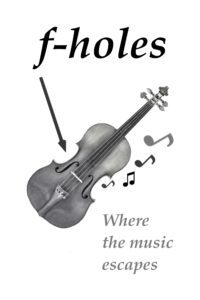Music and head banging
“Music is a moral law. It gives soul to the universe, wings to the mind, flight to the imagination, and charm and gaiety to life and to everything.” Plato

Painting by Laurel Mae Hislop
When I was four years old, my mother took me to our family doctor. I didn’t sleep much and used to sit cross-legged on the floor, banging my head against the wall. This troubled her. Lucky for me, the doctors were pragmatic back then. Our GP told Mom not to worry, that I would fall asleep when tired enough, and the head bumping simply signified a love of music.
So, my mom, bless her heart, bought me three vinyl 45 records and a yellow, plastic, toy record player with a cord that plugged in and a turntable that spun. I remember little from that time of life, but the words and tune of one song seared into my memory—“He flies through the air with the greatest of ease, that daring young man on the flying trapeze.” I listened to it over and over. The head banging stopped, and I began to sleep better.
Today, we get how much music shapes our existence. It’s even used by therapists to treat stress, insomnia, learning disorders, and a plethora of other maladies. Music is a vital part of every day, as important as waves lapping the shore or wind whistling through the trees. Our lives begin with sonic echoes in our mother’s womb and end with the jangly heartbeat of death.
“Music is enough for a lifetime, but a lifetime is not enough for music.”
Sergei Rachmaninov
Most people love one kind of music. It could be country, pop, gospel, rock, jazz, classical or hip-hop. Many of us listen to different styles depending on the time of day or what we’re doing. We might prefer classic rock on the morning drive to work and jazz or classical in the evening.
There’s no such thing as lousy taste in music according to Nolan Gasser, an American composer, pianist, musicologist and founding member of Pandora Media. In his book, “Why You Like It,” he says, “Everyone’s taste is in the end subjective, and thus arguing ‘right’ or ‘wrong’ is futile.”
While writing “f-Holes of MELANCHOLIA,” I thought about and researched two main topics—music and mental illness. The novel chronicles a short period in the life of a classical violinist with bipolar disorder. At one point, during my research, I read that music is the only art form with the power to create pleasure and pain in unison. I can attest to that after writing this book. Listening to violin concertos while burrowing under my character’s skin was both fun and frightening at times.

Published on July 03, 2019 09:16
No comments have been added yet.



